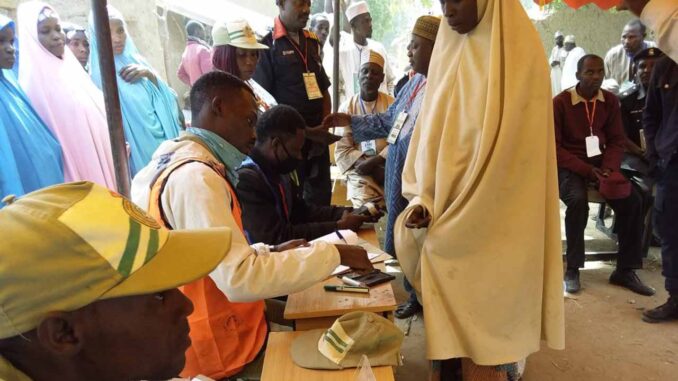
With the amendment of the electoral Act that presently accommodates the electronic transmission of results, one can say that as a nation, we have made some political/electoral gains. However, by the report put together by the Centre For Value in Leadership (CVL), Lagos in partnership with the Policy and Legal Advocacy Centre (PLAC), and supported by MacArthur Foundation; titled Ethics and Standards in Electoral Process in Nigeria (guiding tools/principles), an election is said to be credible when it is organised in an atmosphere of peace, devoid of rancour and acrimony. The outcome of such an election must be acceptable to a majority of the electorate and it must be acceptable within the international community. If elections are to be free and fair, laws designed in that regard must not just exist; they must be operational and be enforced. And the power of freedom of choice conferred on the electorates must be absolute and not questionable.
Nigerian elections were all conducted periodically as expected. They were closely monitored by domestic and international observers, and they aroused varied contestations from Nigerian politicians and voters and they were marred by varying degrees of malpractice. The implication of this finding is that, the electoral process in Nigeria is rendered vulnerable to abuse, through massive rigging and other forms of electoral malpractices by political parties, especially by those in power as they seek to manipulate the system to serve their partisan interest. Elections, which are a critical part of the democratic process, therefore, lose their intrinsic value, and become mere means of manipulation to get to power.
This, the study noted, derogates the sanctity of elections as an institutional mechanism for conferring political power on citizens in a democratic dispensation.
As a way forward, it underlined four basic conditions necessary to create an enabling environment for holding of free and fair elections. These include; an honest, competent and non-partisan body to administer the election, the knowledge and willingness of the political community to accept basic rules and regulations governing the contest for power, a developed system of political parties and teams of candidates presented to the electorate as alternative choices. And an independent judiciary to interpret electoral laws and settle election disputes.
For transparency and accountability during and after the election, INEC should; be free from any form of financial encumbrance, funding of INEC should henceforth come from the first-line charge. The commission should also be removed from the list of Federal bodies. And, the procedure for appointment and removal of INEC chairman and members of the board should be reviewed.
To perform its role effectively as the final arbiter of electoral dispute, and curb the excesses of the politicians, the court must possess both juridical expertise as well as political independence. There should be adequate time between resolution of conflicts and swearing-in of elected officials; section 134 (2) and (3) of the Electoral Act 2010 should be reviewed such that election tribunal cases are expedited. And finally, the court must resist the political or financial pressure and adhere strictly to the underlying legal grounds in their consideration of injunctions.
Aside from adopting or enforcing provisions requiring aspiring candidates to have been a member of a political party to address a high prevalence of defections before elections, which dilutes political party growth and development, political parties should act as a bridge between people and the government and help integrate citizens into the political system. Also, they should inform citizens about politics through socialisation and mobilisation of voters to ensure that the decisions are made by the people.
While the report stressed that any discussion on democracy without the right to receive and impart information is empty. It, however, regretted that journalism in Nigeria with regard to its constitutional roles is not scientific; adding that Nigerian politicians have always used the media in an unwholesome manner. To exit this state of affairs, the report urged practitioners to help build enlightened electorate, as public enlightenment is a prerequisite for free and fair elections. The National Broadcasting Commission, private and state-owned media outlets should strictly enforce, and adhere to regulations on media neutrality and take steps against hate messaging and misinformation in the media. The media should uphold the ethos of providing accurate and factual information to the citizens at all time.
While this is ongoing, the Nigerian Police Force should be guided by, and conform to the appropriate principles, rules, codes of ethics, and laws governing police duties, especially in relation to crowd control and use of firearms. They should maintain impartiality and eschew partisanship or discrimination between the ruling and non-ruling, big or small.
• Utomi is the Programme Coordinator (Media and Public Policy), Social and Economic Justice Advocacy (SEJA), Lagos. He could be reached via; jeromeutomi@yahoo.com/08032725374.
END

Be the first to comment